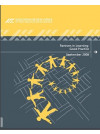Research evidence shows that effective partnerships between schools and parents, whānau and communities can result in better outcomes for students. The better the relationship and engagement, the more positive the impact on students’ learning.
In this evaluation, ‘engagement’ is defined as a meaningful, respectful partnership between schools and their parents, whānau and communities that focuses on improving the educational experiences and successes for each child.
This report complements ERO’s major evaluation, Partners in Learning: Schools’ Engagement with Parents, Whānau and Communities, published in May 2008. It presents case studies of eight schools, identified during ERO reviews, that were successful in engaging with their parents, whānau and the wider community. The report also discusses key factors that contribute to the success of this engagement.
Although all schools have differing ways of involving and communicating with parents and families, six key factors have emerged as critical to enhancing and strengthening engagement.
- Leadership: Engagement between schools and their communities works well when there is vision and commitment from school leaders to working in partnership with all parents.
- Relationships: Mutual trust and respect are critical to relationships in which staff and parents share responsibility for children’s learning and well-being.
- School culture: A school’s culture reflects the values and attitudes that underpin home-school relationships. Schools that are committed to being inclusive enable all parents to be actively involved in decisions affecting their child, and respond to parents’ concerns and questions promptly.
- Partnership: Learning partnerships strengthen parents’ understanding and involvement in their child’s education. Parents feel that their contributions are valued. Effective learning partnerships can have positive impacts on student outcomes.
- Community networks: Schools are an integral part of their communities. Parent and community expertise contributes to school programmes and activities. Networks are built through effective consultation, and there is a shared understanding about priorities for student achievement.
- Communication: Timely, useful and easily understood communication with parents provides opportunities for exchange of information, appropriate for those involved. Barriers to effective communication are actively identified and overcome.
This report discusses what was happening in schools where engagement was working well. The first section gives an overview of what each of the eight schools was doing to engage parents, with a focus on particular strategies. The second section discusses the six common factors evident in schools where engagement was successful. It also includes further examples from other schools where practice reflected these factors

